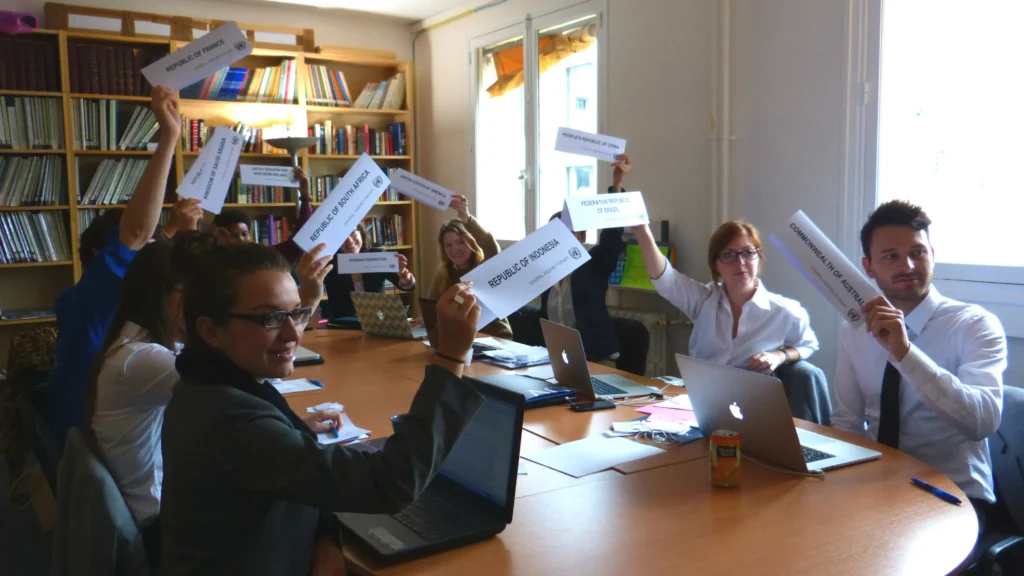Overview
- Degree Level
- Undergraduate
- Degrees Offered
- Minor
- Department
- Historical and Political Studies
- school/college
- College of Arts and Sciences

Arcadia University’s Peace and Conflict Resolution minor prepares students to understand and address conflict at local, national, and global levels. Through an interdisciplinary foundation in political science, sociology, psychology, and international relations, students explore the causes of conflict and develop skills in negotiation, mediation, dialogue, and peacebuilding.
The program emphasizes both theory and practice, enabling students to analyze conflict, craft policy-relevant writing, and apply creative problem-solving to real-world challenges. Practical learning opportunities encourage critical thinking, communication, and collaboration across diverse perspectives.
The minor complements a wide range of majors, including Political Science, Law and Public Policy, Criminal Justice, Psychology, Global Studies, Displacement and Human Rights Advocacy, International Business and Culture, and Media and Communications.
Graduates of the Peace and Conflict Resolution minor are prepared for careers in law, public policy, diplomacy, nonprofit leadership, education, and advocacy, as well as for advanced study in related fields. The program equips students with the knowledge and applied skills to promote understanding, justice, and sustainable peace in an interconnected world.
Required course
Global politics and security are shaped by core ideas and theories students explore in this introductory course. Topics include international law, organizations, security, human rights, foreign policy, and political economy. By examining the historical events that continue to define world order, students develop the tools to analyze today’s challenges in diplomacy, national security, and international cooperation.
Required course
Conflict is a defining feature of the modern world, and understanding its causes is essential for future leaders in international affairs. This course examines the dynamics of both internal and international conflict, exploring how disputes emerge, escalate, and resolve. Students study theoretical explanations for conflict while learning strategies for prevention, crisis management, and post-conflict peacebuilding—skills directly relevant to careers in peace studies, security policy, and humanitarian work.
Required course
Negotiation and diplomacy come to life in this hands-on course. Students learn the structure and role of the United Nations and other international organizations while preparing to compete in a Model United Nations event. By representing countries and debating global policy issues, students sharpen their skills in negotiation, public speaking, and international problem-solving—experience highly valued in fields like international law, foreign service, and global security studies.
Elective course
American leadership in the world has been shaped by evolving foreign policy strategies from Truman to the present. This course explores how presidential administrations have addressed global challenges, drawing on theory and detailed historical analysis. Students gain insights into patterns of continuity and change that influence today’s national security decisions, preparing for roles in government, intelligence, and policy research.
Elective course
The rules that govern international relations are central to conflict resolution and global order. This course offers a comprehensive study of international law, covering its history, institutions, and impact on areas such as human rights and armed conflict. Students examine topics including the use of force, terrorism, arms control, detention, and war crimes, while applying legal principles to real-world issues through discussion, research, and simulations. This foundation supports careers in law, diplomacy, and international security policy.
Elective course
Protecting human rights remains one of the most pressing issues in international security and global governance. This course examines how human rights are defined, protected, and challenged in the modern world. Students analyze the evolution of human rights, the complexities of humanitarian intervention, and the obstacles to building an effective international human rights system. The course is especially relevant for students interested in careers in humanitarian law, advocacy, and international organizations.
